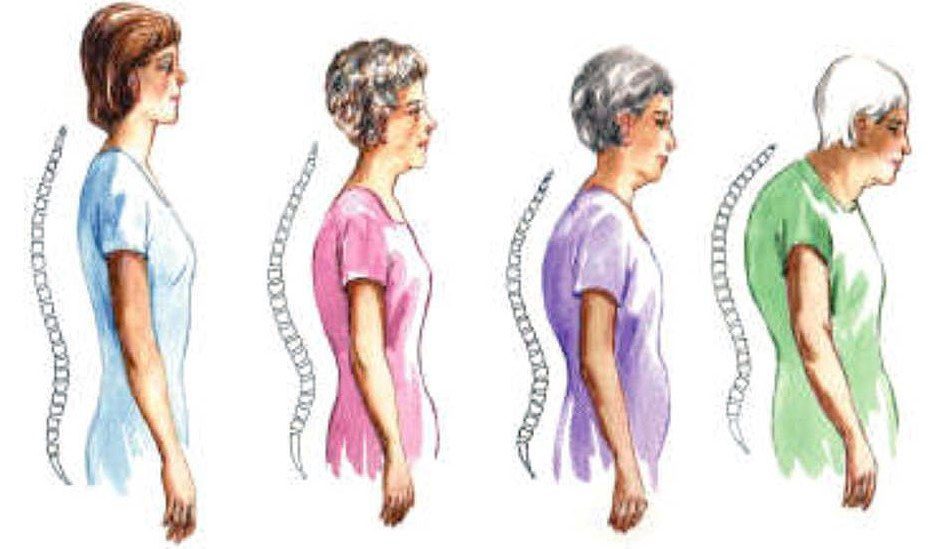Osteoporosis is one of the most debilitating conditions in the elderly, right up there with dementia. What do these two conditions have in common – growth hormone deficiency. In this report, we look at the connection between HGH and osteoporosis and how growth hormone impacts your bones in adulthood.
Although you think you stopped growing many decades ago, your bones are in a continual state of regrowth. As old bone cells die off, you need new ones to take their place. The adult skeleton undergoes total replacement every ten years – of course, not all at once. By the end of ten years, your bone cells will be different from the ones in your body ten years earlier.
What is osteoporosis and why does it happen?

Osteoporosis is a condition that occurs when the honeycomb-like porous spaces in healthy bone become larger due to lack of new cells. As that happens, the bones lose their mass and density, weakening and becoming brittle.
The reason we look at the use of HGH for osteoporosis is to ensure that bone mass does not decline. HGH stimulates the reproduction and regeneration of the body’s many types of cells, osteoblasts (new bone cells) included.
*Bones are in a continual state of renewal, requiring new bone cells to avoid osteoporosis.
What Is the Connection between HGH and Osteoporosis?
Without HGH, your body would not have enough new cells to support skin regeneration, muscle mass, bone density, and the many types of blood cells needed to keep you healthy. Infectious germs and bacteria would enter through small tears in the skin. Bones and muscles would weaken, making you susceptible to life-threatening fractures. Since HGH also supports a healthy immune system, low HGH levels increase the risk of you becoming sick. That is why so many elderly people face early mortality after a fracture. 2 out of every 5 older adults will die within one year of a hip fracture – often due to other causes, including infections. According to research, roughly 20 percent of the elderly will die due to complications from surgery for a hip fracture, or due to the injury itself.
This connection between osteoporosis and low HGH has everything to do with cell regeneration.
As we age, many hormone levels change, especially growth hormone. The lower a person’s HGH levels, the less new cells their body will likely produce. The result is an overall weakening of the body’s structural integrity – bones and muscles, combined.
According to the National Institutes of Health, both men and women can suffer from osteoporosis as early as age thirty, although after menopause and andropause are the more common times for fractures to occur. Bone density reaches its peak by thirty years of age, declining after that right along with HGH production. That is why there is such a strong connection between HGH and osteoporosis.
*HGH stimulates the regeneration of new bone cells to keep the bones strong.
Can HGH Help Prevent or Reverse Osteoporosis?

According to research, postmenopausal women who receive HGH therapy along with estrogen treatment experienced an increase of 14% in bone mineral content. With HGH treatment, osteoporosis risk often declines for both women and men. Even a decade after the study began (featuring 36 months of HGH therapy), the women who had received the higher HGH dose had greater bone mineral density and 50 percent fewer fractures than those who received the placebo or low dose HGH treatment. Some of the untreated women had a four-fold rise in fracture rates.
Does that mean there is hope for reversing low levels of HGH and osteoporosis?
Mounting evidence speaks to the importance of maintaining proper cell reproduction for healthy bones. Not only do the bones benefit from this strengthening, but so do the muscles, organs, and skin.
*Numerous studies have shown the benefits of HGH for reducing the risk of osteoporosis in women and men.
Do Doctors Prescribe HGH for Osteoporosis?

Doctors do not prescribe HGH for osteoporosis for that purpose alone. There is still much research needed to determine if HGH is beneficial for people whose only symptom is low bone density. Adults must undergo blood analysis for growth hormone deficiency before they can receive HGH therapy.
Although HGH and osteoporosis are connected, it is important to remember that HGH therapy only works for people with a deficiency. If the body produces an adequate supply of HGH, supplementing with more will not help. One more thing, if you are looking for the HGH therapy then you must have to choose the best growth hormone doctor.
*Only if you have growth hormone deficiency will a doctor prescribe HGH therapy to help reduce the risk of osteoporosis.